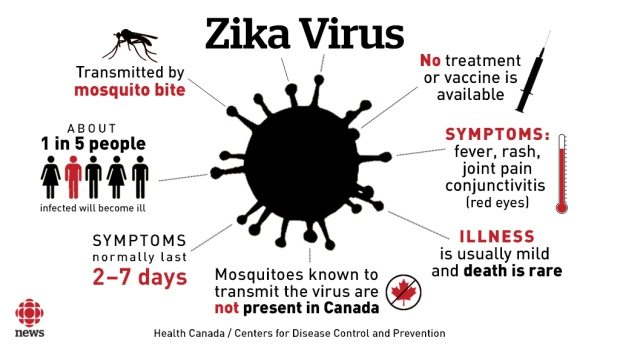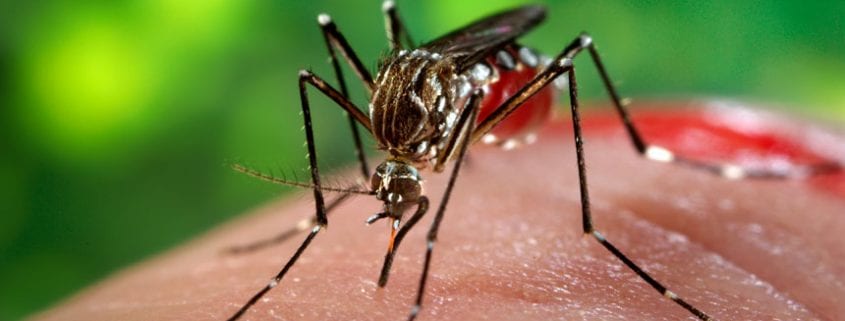Travel Safe – Things You Should Know About the Zika Virus
Before booking your next vacation, review the latest health advisories on the Zika Virus by clicking here.

What Is The Zika Virus?
Zika virus is occurring in many regions of the world. Local transmission of Zika virus was first reported in the Americas in 2015. Currently there is ongoing local transmission in many countries of South Asia, Western Pacific Islands, and South and Central America, including the Caribbean, and Mexico.
How Does It Spread?
Zika virus infection is caused by a virus which is primarily spread by the bite of an infected mosquito. It can also be transmitted by an infected pregnant woman to her developing baby and sexually transmitted by an infected man to his partner.
What are the Symptoms?
Symptoms can include fever, headache, conjunctivitis (pink eye) and skin rash, along with joint and muscle pain. The illness is typically mild and lasts only a few days and the majority of those infected do not have symptoms.
How Do I Protect Myself?
There is no vaccine or medication that protects against Zika virus infection. The Public Health Agency of Canada recommends that pregnant women and those planning a pregnancy avoid travel to countries with ongoing Zika virus outbreaks. All travellers should protect themselves from mosquito bites
1) Cover up
2) Use insect repellent on exposed skin
3) Consider your accommodations
4) Sleep under a bed net, preferably treated with insecticide
5) Apply a permethrin insecticide to clothing and other travel gear for greater protection
- Pregnant women and those planning a pregnancy should avoid travel to countries with ongoing Zika virus outbreaks.
- If travel cannot be avoided or postponed strict mosquito bite prevention measures should be followed due to the association between Zika virus infection and increased risk of serious health effects on their unborn baby.
- Travellers returning from countries with ongoing Zika virus outbreaks:
- For pregnant women, if you develop symptoms that could be consistent with Zika virus infection, you should consult a health care provider.
- For women planning a pregnancy, it is strongly recommended that you wait at least two months before trying to conceive to ensure that any possible Zika virus infection has cleared your body.
- For male travellers, Zika virus can persist for an extended period of time in the semen of infected males, therefore
- It is strongly recommended that, if you have a pregnant partner, you should use condoms for the duration of the pregnancy.
- It is strongly recommended that you and your partner wait to conceive for six months by using a condom.
- It is recommended that you should consider using condoms with any partner for six months.
Consult your health care provider at least six weeks before travel for further details or if you are exhibiting symptons after travelling to affected areas.
Information provided by the Public Health Agency of Canada.



